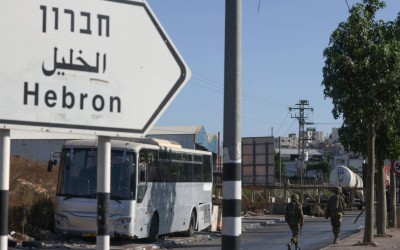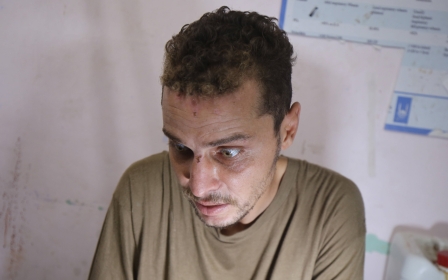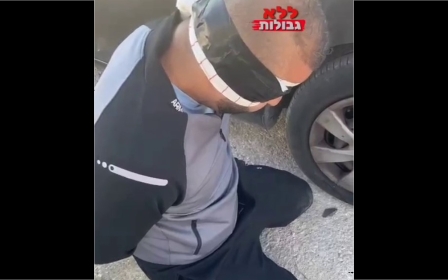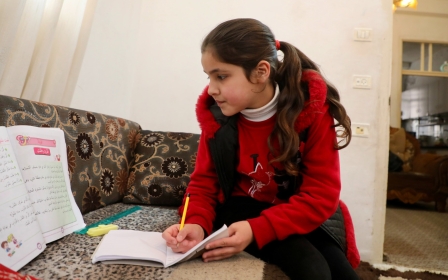Israeli soldiers 'unleashing severe abuse' on Palestinians, warns B'Tselem
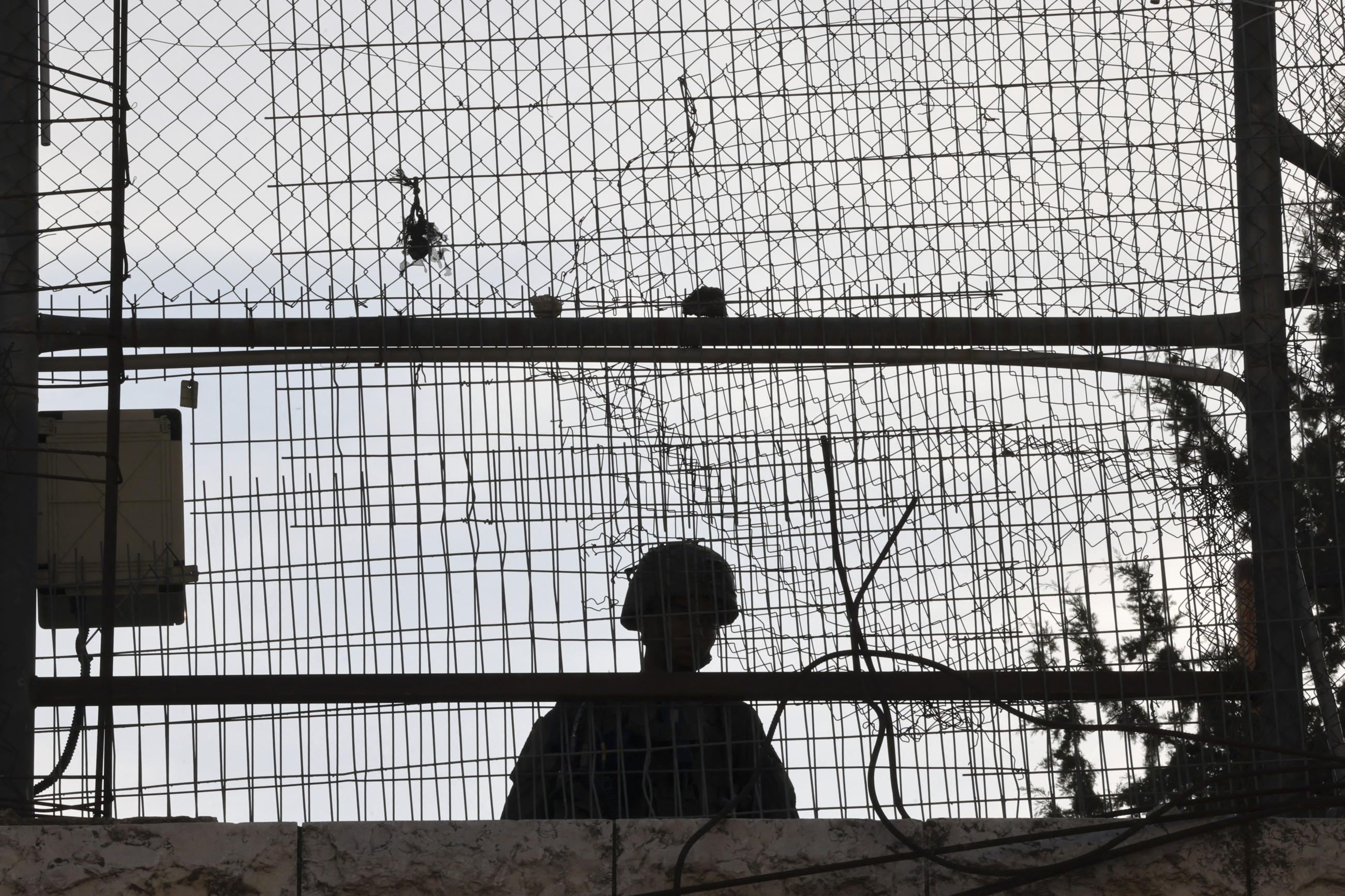
Israeli human rights group B'Tselem has documented "brutal violence" by Israeli soldiers against Palestinians in central Hebron in a new report.
The organisation collected over 20 testimonies from central Hebron, in the southern occupied West Bank, where victims were randomly seized or attacked with no explanation, with some abducted in plain sight.
Field researchers had spoken to other Palestinians who endured similar violence, however many declined to give their testimony out of fear that they might face repercussions from Israeli soldiers or authorities.
The rights group added that none of the victims was suspected of an offence or charged, however, many were released in "a state that required medical attention".
Only two out of the 25 who testified in the report were arrested, then released shortly after.
New MEE newsletter: Jerusalem Dispatch
Sign up to get the latest insights and analysis on Israel-Palestine, alongside Turkey Unpacked and other MEE newsletters
A testimony from 14-year-old Muhammad 'Abd al-Hafiz Rajabi, who was attacked alongside his family in their home, detailed his brutal beating.
"After several minutes of severe beating and cursing, the soldier hit me hard in the testicles with the barrel of his gun," said Rajabi. "I passed out and don't know what happened next. I woke up at Mohammad Ali Al Mohtaseb Hospital with doctors giving me first aid. I had bruises all over my body and swelling in my head."
Ordered to curse mothers
According to the report, many victims were forcibly taken to military areas, including military posts, facilities or watchtowers, and beaten by one or more soldiers, while others endured abuse inside checkpoints, military vehicles and inspection rooms.
In the testimony of Muhammad 'Aref Jaber, 21, he recounted how soldiers took him and his friend to a military observation point, while holding them at gunpoint.
'One of them hit me hard in the testicles. I screamed in pain, and then he hit me harder in the same place. I begged him in the name of God to stop'
- Mahmoud 'Alaa Ghanem, 18
"They searched both of us and then tied my hands with zip ties, put a garbage bag over my eyes and led me to a military jeep," he said, after which they took him to an observation tower.
"The soldiers put garbage bags over our heads and ordered us to curse our mothers and families. I think they were filming it."
The abuse, some victims' testimonies recounted, was justified under any pretext deemed suspicious by the soldiers, such as making posts or following updates on Gaza. They were subsequently transferred to military facilities or posts, where they were subjected to physical and mental torture while handcuffed, blindfolded and held at gunpoint.
In one case, 18-year-old Mahmoud 'Alaa Ghanem was ordered to unlock his phone. The soldiers then attacked him inside a jeep after seeing an Instagram post of a fake picture showing an Israeli soldier with three hands saving babies on 7 October.
"One of the soldiers grabbed me by the hair and slammed my face into the back door, three times in a row. I felt that my mouth and nose were bleeding," he was quoted as saying.
"One of them hit me hard in the testicles. I screamed in pain, and then he hit me harder in the same place. I begged him in the name of God to stop hitting me."
In the report, sexual violence and humiliation, such as being forced to undress, beatings to their genitals and threats of rape, were also recounted by several victims.
In one case, 20-year-old Mahmoud Jaber was forced to undress, with the soldier scanning his body with a metal detector. "When he got to the right knee, the device beeped because of the platinum (metal implant), and he used it to hit me on the knee."
"Then they told me to get dressed. I got dressed, and one of the soldiers took 50 shekels I had in my pocket and forced me to undress again and do 150 push-ups. I told him I couldn't, and then the soldiers beat and cursed me. I was completely naked. It was a very humiliating experience."
Another testimony from Muhammad al-Natsheh, 22, recalled soldiers swearing and spitting at him, with one threatening in Arabic to rape him.
"One of them grabbed my head, and another soldier tried to open my mouth and shove a rubber object in it. I made a huge effort not to open my mouth," Natsheh said.
"Then a soldier who spoke Arabic came over and ordered me to get up, but I couldn't. He grabbed me by the neck, lifted me up and made me stand facing the wall, and then he started pushing my head left and right violently with his hands, saying: 'If I see you in this place again, I'll rape you and kill you. I'll do the same to anyone else I see here'."
Soldiers documenting own violence
According to B'Tselem's report, documenting the violence, abuse and humiliation was "part of the attack itself". Soldiers filmed some of the incidents or were showcasing them on video calls while mocking the victims.
Qutaybah Abu Ramileh, 25, told the rights group that he and his brother endured physical and verbal abuse from the soldiers, and were subjected to severe beatings with rifles and belts. "The beating with the belt lasted about three minutes, and then the soldiers brought a bucket and put it on my head. Later, I understood they put a bucket on Yazan’s head, too," he said.
'I never imagined they would detain my three-year-old son and me, to punish me for 'not raising him well' because he supposedly threw stones at them'
- Khitam Da’na-al-Qimari, a 26-year-old mother of two
"Then the soldiers brought ice and put it down my underwear. Yazan told me afterwards they did the same to him.
"They also poured an alcoholic beverage into our clothes. I heard a soldier talking to a girl on the phone. I think it was a video call. They were laughing and making fun of us."
B'Tselem documented lasting psychological impact on the victims following these attacks.
"All were left keenly aware that although that particular incident may be over, they and their families are living in a constant threat to their lives, bodily integrity and wellbeing," the report said.
Khitam Da’na-al-Qimari, a 26-year-old mother of two who had her house raided by Israeli soldiers, still gets shaken by the memory of what they endured on 17 August 2024.
"I never imagined they would detain my three-year-old son and me, to punish me for 'not raising him well' because he supposedly threw stones at them.
The family was separated and transferred to different military checkpoints throughout that night, threatening to take her kids away from her.
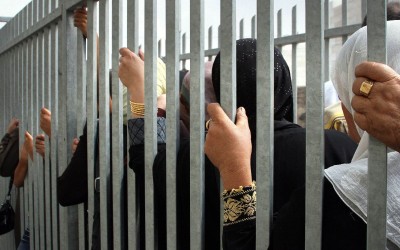
"I told them Muhammad is just three years old and doesn’t understand what it means to throw stones. My children were afraid of the soldiers. They cried and clung to me."
Hamed al-Qimari, 30, Khitam’s husband, said that his wife "completely fell apart" upon returning home that night.
"Since October 7 and the start of the war in Gaza, we’ve been suffering from harassment and violence by the occupation authorities all the time here. They’ve made our life a true hell. A lot of families have left the area because of it," he said.
According to the report, the violence perpetrated on Palestinians in central Hebron "cannot be explained only as a personal vendetta by soldiers or a flaw in the system".
Instead, the rights group says that this abuse is "a systematic, longstanding policy of oppression, expulsion and dispossession that is at the very core of the Israeli apartheid regime.
"This reality leaves Palestinians with two options: uproot themselves from their homes, land and communities, or live in constant fear of violence."
Middle East Eye delivers independent and unrivalled coverage and analysis of the Middle East, North Africa and beyond. To learn more about republishing this content and the associated fees, please fill out this form. More about MEE can be found here.


